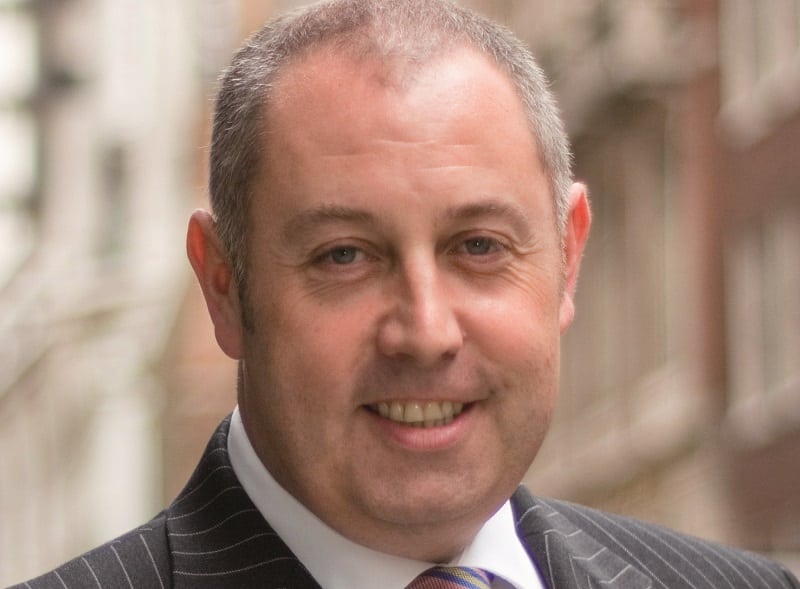Adviser firms are offering service propositions that exceed the old established professions says Lee Robertson the former chief executive of Investment Quorum.
Following the news that he was stepping down after a management buy-out, Portfolio Adviser spoke to Mr Robertson about his 18 years since the foundation of IQ asking him about the changes to the sector during this time.
He says: “The service propositions of some advisers would now knock the old professions into a hat – the accountants and solicitors. These propositions are really well formed, really well charged and really well articulated.”
RDR boosts the industry’s confidence
He says the most welcome change has been advisers “becoming business people in their own right and not just paid distribution channels of LifeCos”.
The RDR was clearly a massive shift although, he says, many firms were pretty much RDR complaint or close to it, before the regulations came fully into force. However, what it has done now is boost the confidence of advisers in their own business models.
“There are people doing flat fees, there are people fee charging outright and explicitly, some have built their own investment models, and have built their own DFMs. They are technically excellent. The good ones are really good now as opposed to just selling a product.”
An Investment Quorum client perspective
When asked about the firm and its place in the market over the last 18 years, consultant Clive Waller says that from a research point of view, the thing that stood out about IQ was its curiosity and determination to learn more.
He says: “Every time I have talked to them, their curiosity has enabled them to do something different and something better. They are never happy to stay where they are. They want to do something better.”
He is also incidentally a client.
“As a client, my contact is normally a practice manager so I am not wasting anybody’s time, I see my adviser when I want to, but if I need anything else, they have experts, good people for different situations. I joined as an investment client, became a pensions client, then a probate client.”
Advisers keeping investments in-house
Interestingly one peer, Syndaxi Financial Planning director Robert Reid suggests that Investment Quorum, by setting up a successful discretionary fund management business with a compact team, may well have encouraged other advisers to create their own CIPs rather than necessarily outsource.
Robertson says that he would have been surprised by some of the changes of direction from the original plan though not all.
“We weren’t a hundred percent fee based but we saw the direction of travel. We were very early adopters of platforms, but I don’t think that we envisaged at outset the fact that seven years later we would be going DFM and recruiting an investment professional from a big investment house. For us, that was the big difference,” he says.
Beating the banks during the financial crisis
In addition, he feels that the financial crisis, which struck a little before the mid-point in the life of the business, allowed firms such as IQ and other advisers to demonstrate how client centric they were.
He says: “One of the great bits of feedback we got from our clients during that whole period was that we were about the only people talking to them. The banks pulled the shutters down and weren’t talking to them.
“As advisers we were on the phone – explaining to clients what was going on, addressing whether they wanted to stay invested, saying not to panic, explaining they should be moving money if it was in just one bank, because of the compensation limits. We did that proactively for clients who felt ignored when they tried to contact their bigger financial institutions. That underpinned a really good period for client relations although it was traumatic for everyone. The advisory community – the good advisers certainly – were incredibly proactive.”
‘Always hold true to your beliefs’
Interestingly, for those who would set up a business now, he does not think, exams aside, that it has got significantly more difficult. He believes that the public has every right to expect a qualified, technically competent adviser. Rules around inducements may have gone a little too far, whether that is the regulator’s fault or compliance departments’ interpretation of the rules, because it has reduced the amount of soft contacts, but, by and large, he wouldn’t change much about regulation.
Aurea Financial Planning managing director Rebecca Taylor says: “Lee built a solid business and very good reputation going down the route of specialising in investments. It is the same as any good business practice, do what you are good at. So if you are good at investments, then perhaps go the DFM route and do it really well. You can be really good, if you do pension transfers – although it is a sticky subject at the moment, but if you do them do them really well, then do them or do financial planning taking a much more holistic route. Work out what you are good at and do it. Don’t do other things because it is fashionable.”
Waller adds: “So many advisers I have talked to believe in the status quo now. They have invested a lot in getting with the programme. IQ was always about how can we make it better. Of course, 18 years ago most people were selling bonds, taking 8% initial if they were big, 6% if they were small, and a few were taking 3 plus a half. People forget that.”
Robertson’s final advice about what he learned so far is as follows – “Always hold true to your beliefs. Always put your client first. Never give up your personal business integrity and there is a no substitute for hard work.”







